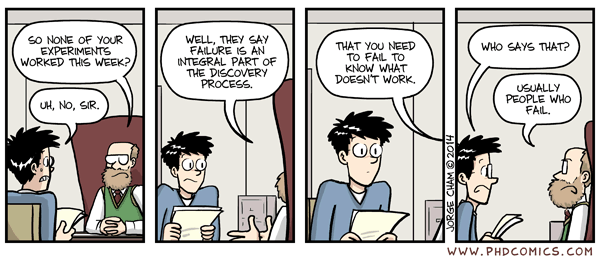by Dorothea Born

The other day I discussed the difficulties of living and working in academia with a very successful former professor of mine. When it came to his own career, he made an interesting confession: “It was pure chance that I ended up doing what I am doing now,” he said, “After I graduated from high-school, I tried out several jobs and studies, until I found my place. These early years, I always leave them out in my CV.” This made me wonder about the role of CVs in academic practice and careers.
In his paper about power structures, scientific misconduct and other doubtful practice in science, Martin identifies constructing curriculum vitae as one of the more dubious but nevertheless well-accepted practices within academic life. CVs, he argues, should ideally make the person they describe look as good as possible, which leads to exaggerations, polishing of certain details, blowing-up of duties and listing every publication possible. And, most interestingly, “failings are omitted from the vitae” (Martin, 1992).
In a world of rising academic competition and performance pressure, the function of CVs to convey academic excellence and success becomes ever more important. But also the unease with CVs might have increased. In April 2016 Johannes Haushofer, professor at Princeton University, published his CV of failures on Twitter: “Most of what I try fails, but these failures are often invisible, while the successes are visible (…) This CV of Failures is an attempt to balance the record and provide some perspective.“ Haushofer lists degree programmes where he was declined, job positions, fellowships and awards he was denied as well as papers and grant proposals that got rejected. He earned extended applause from the scientific community, with many academics proclaiming that this CV helped them accept their own failures, as well as a lot of attention in mainstream media (e.g. Guardian or Independent.) The positive response was so overwhelming that Haushofer added a meta-failure: “This darn CV of Failures has received way more attention than my entire body of academic work.“
Haushofer had gotten his idea from an article in Nature by Melanie Stefan. Stefan argues: “As scientists, we construct a narrative of success that renders our setbacks invisible both to ourselves and to others. Often, other scientists’ careers seem to be a constant, streamlined series of triumphs. Therefore, whenever we experience an individual failure, we feel alone and dejected.“ Publishing CVs of failure thus may help others to cope with their own failures and debunk the myth of the linear, successful career paths proclaimed by traditional CVs.
Indeed, reading about these CVs made me think about my own failures. What did I not achieve? I unsuccessfully applied for the University of Vienna’s joint study programme. Two grant applications were rejected, one for the IFK (although it was accepted the next time I applied) and one for the ÖAW (where I was on the fourth place of the waiting list, a very close and therefore even more annoying failure). I also never got a performance scholarship from the University of Vienna and I never finished my degree in either Celtic studies or political science. In fact, in political science, I never got past the first exam, although I attended many seminars, because I was scared my analytic writing skills were insufficient for seminar papers. This last confession leads me to think about all the things that are invisible even in CVs of failure: All the things one did not even try, because of a lack in courage, self-esteem, time or other resources.
But looking at this last paragraph also makes me doubt. Should I really publish all these failures on our department’s blog? Even Stefan says, “If you dare – and can afford to – make it public.“ So who can afford to publish their CV of failure? Those who do (see examples here and here) are mostly academics that already have their secure position and high-flying career. “Only successful people can afford a CV of failure,” writes Sonia Sodha. But even successful people might find the idea of talking about their failures not very attractive. Of the 20, very successful academics German journalist Anna-Lena Scholz called for an article on the topic, only four were willing to give her an interview.
At least, my own CV of failures is not very long. But then, maybe that’s not a good thing either, but just shows that I did not try hard enough. Maybe, what CVs of failure really show are not so much your failures but how hard you tried? In the end, they are success stories telling us that we just have to work really hard, try, fail and try again to achieve our goals. They are in line with the neoliberal paradigm that we all forge our own destiny. CVs of failure may open up debates about academic excellence and straight career pathways by pointing to the invisibilities of traditional CVs. Yet, they have their own invisibilities and are inscribed in the logics of neoliberal capitalism. In that sense, we should also look at how to create responsible metrics to assess excellence in order to reflect further about career pathways and success in academia.
References
Martin, B. (1992). Scientific fraud and the power structure of science. Prometheus 10(1), 83—98.
Dorothea Born is a prae-doctoral university assisstant at the Department of Science and Technology Studies. Her research interests gravitate around climate change communication in visual cultures, popular science magazines and conceptions of nature. She also teaches undergraduates at the department about scientific practice.